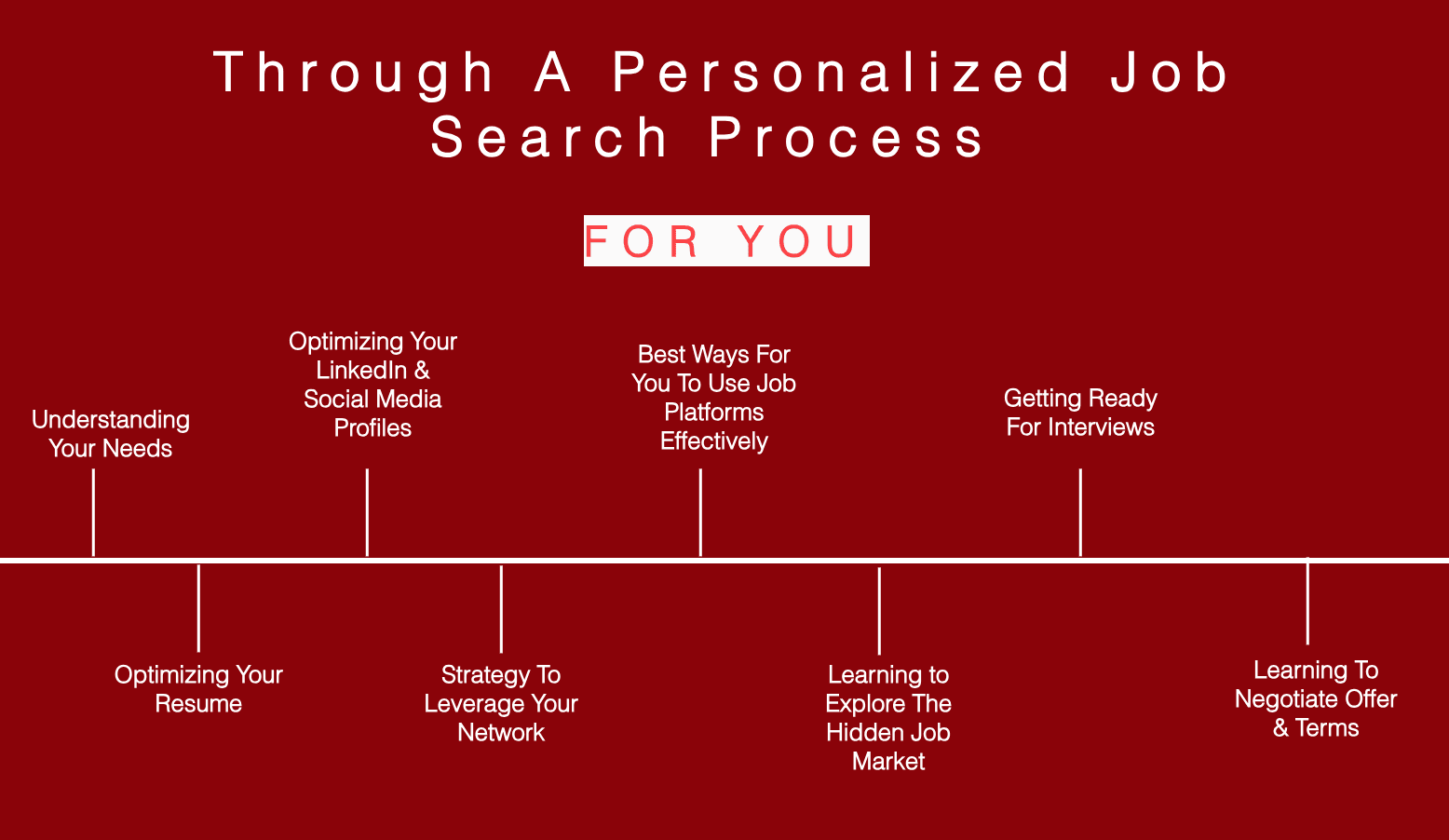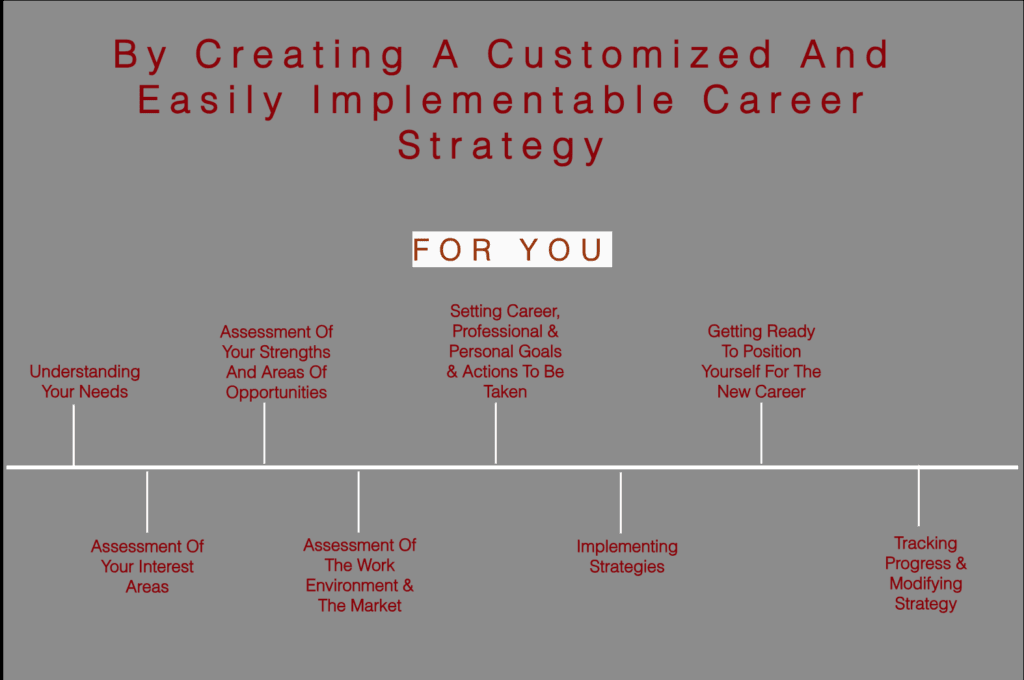I Can Help You Find Your Desired Job Faster

Why Is A Personalized Step by Step Job Search Strategy Required?
- Understanding Your Needs
It’s essential to have a clear understanding of exactly what you want from a job—title, role, skills required, and level. This clarity is the foundation of a targeted job search strategy. - Optimizing Your Resume
Your resume must clearly convey the value you can bring to potential employers and be formatted to pass through Applicant Tracking Systems (ATS) effectively, ensuring it reaches recruiters. - Optimizing Your LinkedIn and Social Media Profiles
With most recruiters using social media to discover candidates, a standout profile on these platforms is crucial. It should not only exist but also be finely tuned to enhance your visibility among hundreds of millions of profiles. - Strategy to Leverage Your Network
Since 80% of positions are filled through networking and referrals, understanding how to effectively build and utilize your network is key to uncovering job opportunities. - Best Ways to Use Job Platforms
Simply submitting applications on job boards is often ineffective. Learning the specific tactics for identifying and applying to the right opportunities on these platforms can significantly improve your job search results. - Learning to Explore the Hidden Job Market
With the majority of jobs not publicly advertised, strategies for tapping into the hidden job market are essential to avoid a prolonged, frustrating job search. - Getting Ready for Interviews
Preparation is key in a competitive job market. Thorough research and practice are necessary to impress at interviews, which may involve multiple rounds with different members of the hiring team. Using appropriate body language, Understanding the psyche of each interviewer and using behavioral techniques to answer questions are important to stand out in interviews. - Negotiating Offer and Terms
After securing a job offer, it’s crucial to negotiate effectively to ensure your new role meets your expectations and needs.
Trust Me To Be Your Guide On Your Job Hunt
I Can Also Help You Grow In Your Career

Why Do You Need A Tailored Career Strategy?
- Understanding Your Needs
It’s crucial to define your career aspirations clearly. Whether you’re considering a shift to a new role within your current organization, a leap into a different industry, or a completely new career path, understanding whether you’re seeking vertical growth or a new set of challenges will guide your strategy. - Assessment of Interests
Before making a career change, evaluate your passions and interests. This ensures that your career direction aligns with what you enjoy and are enthusiastic about, contributing to long-term job satisfaction. - Identifying Strengths and Weaknesses
A thorough assessment of your strengths and areas for improvement is necessary to not only make informed career decisions but also to prepare effectively for them. - Understanding the Work Environment and Market
Analyzing both your current work environment and the broader market is essential. This includes understanding internal dynamics such as corporate culture and politics, as well as external factors like market demand for your skills. - Goal Setting and Skill Acquisition
With a clear strategy and understanding of timing, set specific career, professional, and personal goals. This may involve acquiring new skills or boosting your confidence to navigate new challenges. - Strategy Implementation
Activate your career plan in a structured, step-by-step manner. Increase your visibility, foster positive perceptions, and seek guidance from mentors and sponsors. This stage also involves mastering how to handle daily challenges from various stakeholders in your current role. - Positioning for New Opportunities
Prepare to articulate your value in new roles, especially when lacking direct experience. Ready yourself to address potential concerns from hiring managers, showcasing why you are a fitting candidate for the transition. - Tracking Progress and Adjusting Tactics
Continuously evaluate the effectiveness of your strategies and make necessary adjustments to stay on track towards achieving your career aspirations.
Allow Me To Be Your Guide On Your Exciting Future Career Journey
